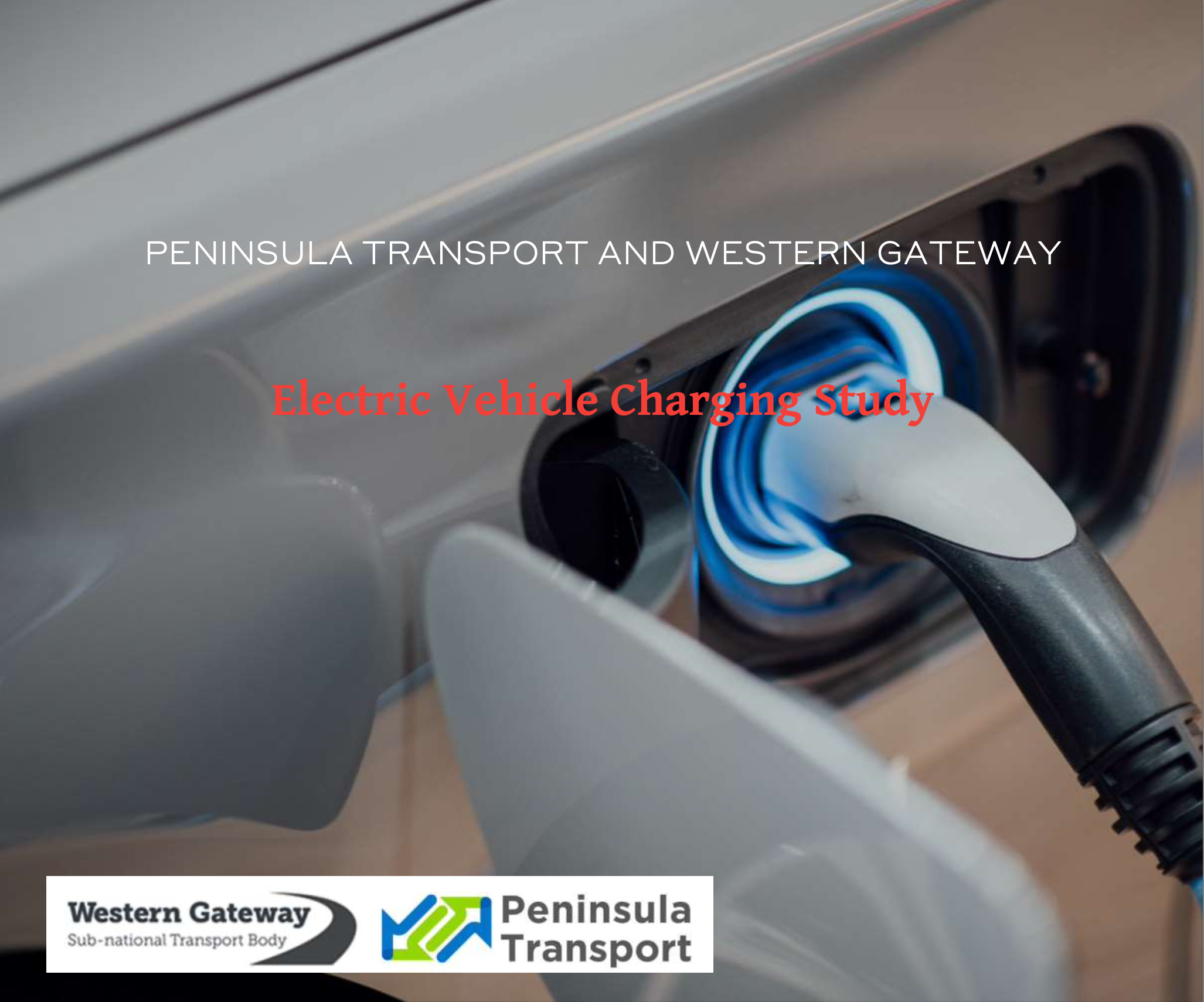Electric Vehicle Charging
Our joint Electric Vehicle (EV) Charging Study, in partnership with Western Gateways STB, provides an evidence base to support future EV charging policy across the region.
The data from the study will help local authorities to understand where, how many and what type of chargers will be required. The study takes into account the split between rural and urban demand, seasonal changes in demand, as well as likely areas of private sector investment.
The WSP EV:Ready model was used to calculate how EV uptake would grow in the future, up to 2050. The modelling showed that EV use is set to accelerate; with just over 99,000 EVs in the region currently, uptake is expected to increase up to 2.3-3.2 million by 2035.
The number of public charge points must be able to cope with demand, ensuring that EV users can travel around the peninsula with the confidence of being able to top up when needed. As of January 2023, there was 2,408 existing chargers already operating in the region. However, to meet increasing demand, additional public charge points will be needed, ranging from 11,400 – 13,400 by 2025, 24,000 – 33,600 by 2030 and 54,800 – 74,400 by 2035.
These charge points would be provided by both the public and private sector, with the public sector expected to deliver 10,600-20,000 charge points across the South West by 2030.
Next steps
- Development of a spatial planning tool for uptake, an online dashboard which will allow councils to cross-examine the data in detail
- Set up a South West EV forum

